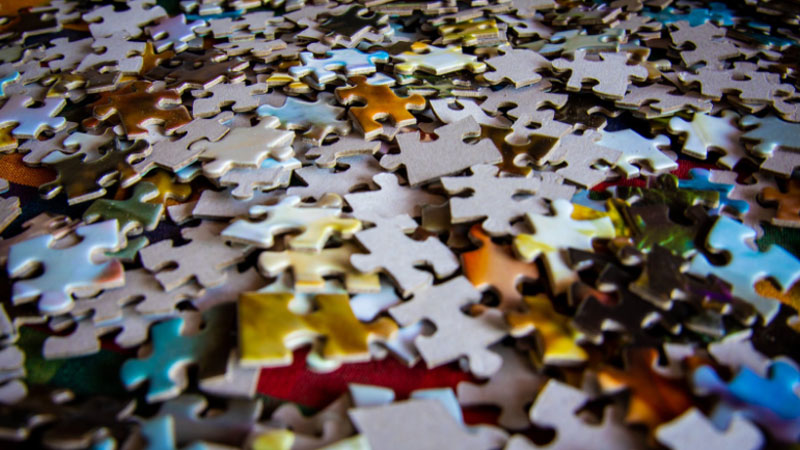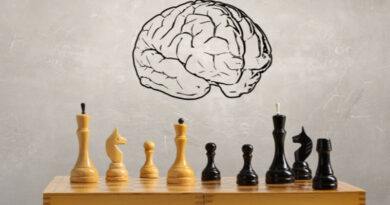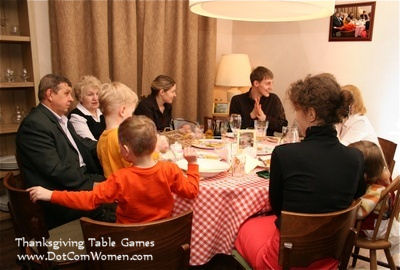Reasons Why Custom Puzzles Will Have Your Whole Family Playing

Solving a puzzle is an activity that challenges our brain and that we can all enjoy, both adults and children. As you put together the pieces and disappear into a world looking for color shades and shapes, you can shut off the rest of the world and forget about your stressful day at work or how grumpy the kids have been all evening. Trying to combine the different pieces gives adults stimulus while it develops fine motor and problem-solving skills in children. You can find online research reports that show some activities, such as puzzles, are a good exercise for our mental health, especially for senior adults. Below we list several reasons why puzzles will have your whole family playing.
Custom Puzzle to Keep Memories Alive

Image source: Pinterest
An excellent idea for a gift is to get custom puzzles that you can surprise friends and loved ones with, which they’ll be able to enjoy for many years ahead. There are unique puzzles in different designs, all shapes and sizes, suitable for kids, adults, beginners, and puzzle masters. There are so many possibilities for creating the perfect custom puzzle. You can use your favorite pictures to create memorable photo puzzles, and you can even surprise your sweetheart by writing a hidden message that gets revealed as they assemble the puzzle pieces. You can customize a witty personalized name puzzle or a puzzle for children as a special birthday, Christmas, or graduation gift. Older people, children, and teens will be sure to enjoy a custom puzzle that can be personalized with photos, text, or your own custom designs.
A Way to Spend Quality Time with the Family
Nowadays, it can be difficult to get away from the distractions of modern appliances and screens, to-do lists, and work emails, so that we can find the time we want for the people who are important to us. We may find ourselves looking back on memories of traditional family time and wonder how we can encourage our children to experience more of the simple and healthy joys of life that we knew in our childhood.
Why not rediscover the happiness of family time with a brand new puzzle? Spend quality time with the family and give the children a fun and enjoyable source of entertainment that builds their skills and inspires their imagination. The puzzle is a proven and authentic feature in every family household that is fun and costs nothing compared to other entertainment options. Searching for the next piece of the puzzle creates an excellent break for meaningful conversations between family members. Puzzles can also be a great tool for teaching children how to socialize while solving problems, developing memory, focus, and patience – which are valuable assets for all life stages.
Enhances Children’s Development

Image source: Pinterest
We all remember our first puzzles, where the pieces with grip knobs were few and large and only fit in a certain place. After that, puzzles became increasingly complex, and even later, you might have added a 1000-bit puzzle that took days or even weeks to complete. When talking about puzzles, most people probably think that it is a fun and good time passing activity, but putting together puzzles can teach our children much more. Here are some of its positive effects:
- Cognitive Skills: solving puzzles is a form of problem-solving. The child must concentrate when facing a task that needs to be solved.
- Social Skills: if you put puzzles together with other people, you practice collaborating by trying to explain which pieces are there and you learn to listen to others.
- Self-Esteem: laying out a puzzle from start to finish gives a sense of well-being. The child learns to fulfill his commitment, work patiently, and feel satisfied when the puzzle is finally finished. It is, therefore, important to choose the right level of puzzle difficulty. It helps children strengthen their self-esteem by teaching them that they can achieve the goals they set for themselves.
- Motor Skills: puzzles greatly help the child to develop both gross motor skills and fine motor skills. Fitting the right pieces together is not always so easy.
- Language Skills: it is not always easy to explain which piece you need help with finding. The child must develop his vocabulary and practice trying to explain.
- Mathematical Skills: the child learns basic mathematical concepts, such as classifying and organizing pieces to be able to easily solve the puzzle.
How the Puzzle Benefits the Brain of Adults
As we mentioned, puzzles require different cognitive qualities and can help maintain these qualities in old age. No matter what the puzzle represents – a zoo, an underwater world, a landmark, or a sports team – people who often put together puzzles show higher cognitive health in older age than those who puzzle less. A study conducted at the Ulm University in Germany showed that puzzles assembled by healthy adults over the age of 50 do require not only short and long memory but also reasoning ability, cognitive flexibility, mental rotation, and visuospatial perception. All of these are abilities that mean that you can see patterns and how they should be connected, do things in the right order, or be able to turn the pieces upside down inside one’s head and see if they fit. Puzzles can be a protective factor against cognitive aging, especially when performed long-term and regularly.
Concentrating on putting together puzzle pieces provides a mental focus that can help people ease pressure and decompress. This is primarily because most people manage to “shut off” by concentrating fully on the art of solving the puzzle.
Researchers who worked on the study believe that regular relaxation by solving puzzles counteracts the harmful effects of chronic stress on the brain’s nerve cells. The cognitive challenge of puzzles can also lead to the creation of new connections in the various networks of the brain. This means that the combination of relaxation and cognitive challenge with the puzzle can be a decisive factor in maintaining cognitive qualities into old age.
Final thoughts
Puzzles are a stimulating and fun activity for both children and adults, and they offer a number of benefits. Solving puzzles is a good way to spend time with your children while training their logical thinking and eye/hand coordination. You can buy puzzles designed in an educational way so that you can combine playing and learning at the same time, with everything from cube puzzles with different figures to larger motif puzzles. This hobby doesn’t take up much space in your home, and because of all the qualities mentioned above, it also makes the ultimate gift. Add a personal touch and create a custom puzzle by using your favorite family vacation, celebration, or birthday pictures. This will make the perfect yet unexpected and unforgettable gift to the people you love.


